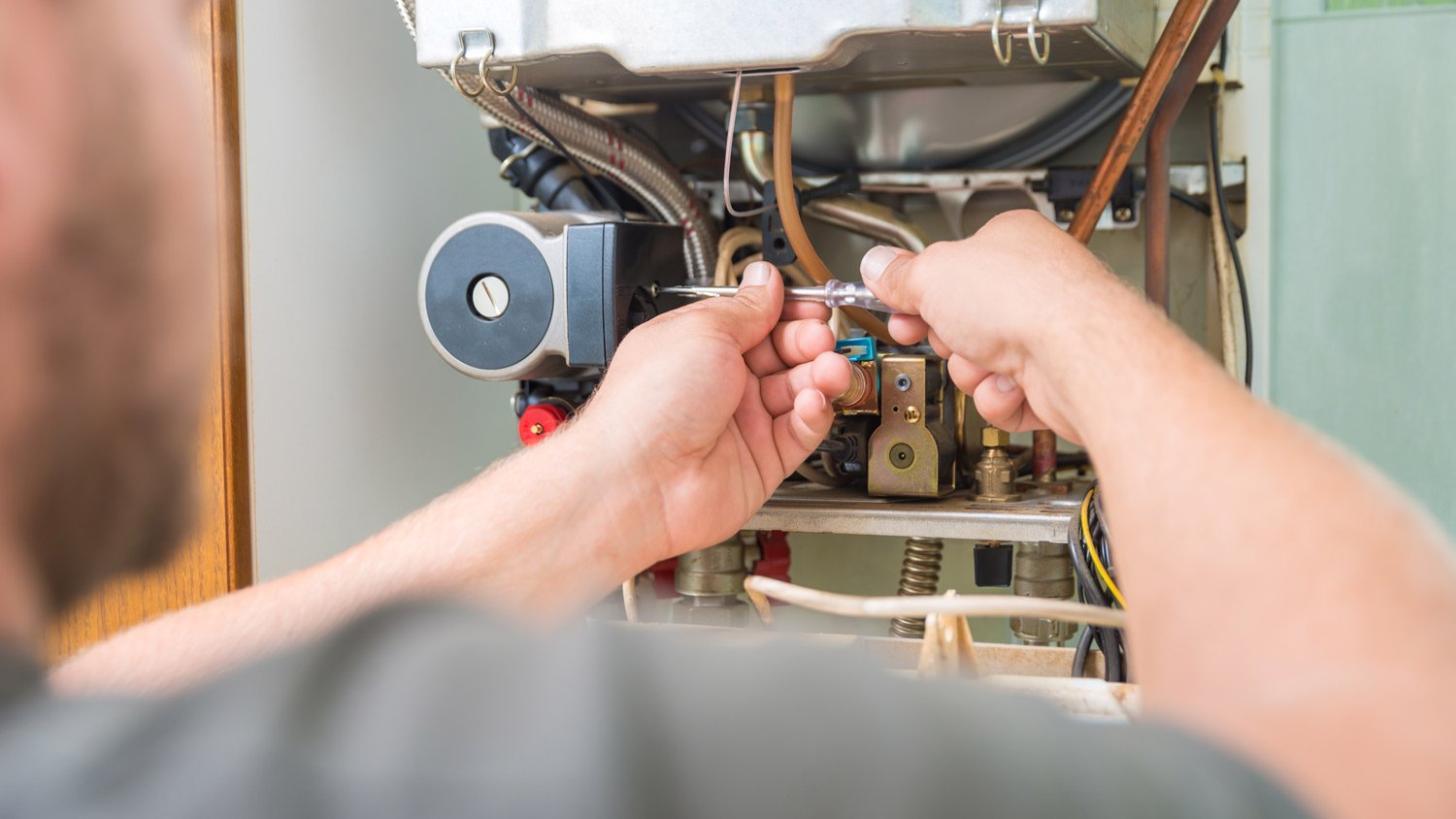
A blower door test can identify air leaks in your home and help boost energy efficiency. Use this blower door test cost guide to see what your test will total.
There are five common gas furnace types to choose from, based on your needs


Having the right heating system in your home isn’t just a comfort—it’s a necessity, especially in colder parts of the country. When temperatures dip, staying warm means staying healthy and comfortable. If your furnace is about to give up the ghost, now might be a good time to consider a new system.
Here’s a look at five gas furnace types and their features.

This standard furnace is a one-trick pony. It only operates on a high fan speed. It’s not the most energy-efficient furnace, and it’s louder than other models. This type of furnace will only suffice in regions with mild winters.
The two-stage furnace is quieter than a single-stage furnace and has two fan speeds: high and low. The two-stage furnace has a longer running cycle, allowing the heat to distribute more evenly throughout the home.
Even quieter than the previous two gas furnaces on the list, the variable speed furnace helps reduce energy consumption. This type of furnace works well in two or three-story homes.
This system allows for even more flexibility in home heating. This furnace will automatically switch between a slower and higher speed depending on the temperature outside and inside.
The modulating variable-speed gas furnace provides the best energy efficiency. The system operates by making slight adjustments to minimize temperature fluctuations. This type of furnace will help keep your home comfortable. If you live in a colder climate, it will help you save money.

Choosing the type of gas furnace that’s right for you is an important decision. On average, gas furnaces last between 15 and 20 years if they’re properly maintained. An annual furnace checkup will help it last even longer.
You’re making a long-term commitment to the furnace you choose, so taking some time to consider your options is essential.
The most common considerations when choosing a gas furnace include:
Cost
Size
Furnace features
Energy efficiency
If you live in a milder climate, a simple heating system may be enough to keep your home warm enough. Harsher climates require a sturdier system. While the cost of a new furnace can be a significant factor, investing in a quality heating system will ensure your home stays warm for years to come. And remember that you can’t install a gas furnace on your own. Always hire a local furnace installer to do the job for you.
It's worth spending a bit more money up front to get an HVAC system that is really efficient and reliable. High-efficiency heating will save money over time and decrease your impact on the environment.
If a gas furnace isn’t quite what you’re looking for, there are many alternative heating options. These options are great for additional heating sources or stand-alone heating.
Alternatives to gas furnaces include:
Electric furnace: Operates similar to a gas heater, but using electricity.
Gas pellet stoves: Uses wood pellets made from wood waste to heat rooms.
Heat pump: Heat pumps use electricity to move heat between locations.
Radiant heating: Heats a room through panels underneath the floor. Homeowners may also install the panels in the walls or ceiling.
Wondering which type of furnace to install? According to Angi data, 58% of customers have a natural gas furnace and 77% want to add one to their home. Other popular furnace options include propane gas, electric, and oil.
Talk with your furnace installer about the best choice for your home.
From average costs to expert advice, get all the answers you need to get your job done.

A blower door test can identify air leaks in your home and help boost energy efficiency. Use this blower door test cost guide to see what your test will total.

What you’ll pay in Columbus, OH, for furnace repairs depends on many factors. Here’s a breakdown of what can go wrong and the cost to fix those issues.

When your window AC isn’t cutting it, but central AC is too expensive, installing a new ductless mini-split AC may be the cooling solution you’re looking for. Find out what a mini-split costs and how to hire the right pros to get the job done.

A problem with your heat pump can lead to a house that’s too cold or too hot. Learn the most common heat pump problems—including any weird noises—and their solutions.

Figuring out how to eliminate ductwork noise may require anything from replacing the ducts to changing the filter. Learn more about fixing this issue.

If you’re thinking about an alternative to a traditional HVAC system, you may want to consider a heat pump. Read on for more about heat pump systems.